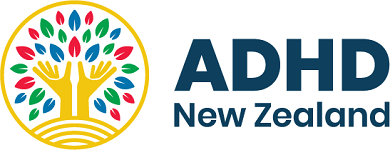Image by Madsmith33 from Pixabay
Myth busting ADHD 101 - medication cures ADHD
There is currently no cure for Attention Deficit Hyperactivity Disorder (ADHD) but there are different types of treatment to suit an individual with ADHD. These vary across a range of:
With evidence-based treatment, support, and appropriate accommodations, people with ADHD can thrive in productive and rewarding lives.
The Tertiary Education Commission (TEC) acknowledged neurodiverse learners are underserved by the tertiary education system and are in the process of changing that.
To promote support and appropriate accommodations for people with ADHD, ADHD New Zealand has collaborated with TEC to develop e-learning modules about ADHD for staff in tertiary education organisations.
As part of the development, ADHD New Zealand ran several focus groups to improve our understanding of what was required.
Collaboration with neurodiverse learners and staff from tertiary education organisations via focus groups and interviews defined the content and development for these e-learning modules.
Specialist medical professionals also reviewed the content to ensure accuracy.
There are four modules, and each module takes 30-45 minutes to complete. Information in the four modules includes:
1) understanding learners with ADHD
2) how to effectively engage learners with ADHD
3) strategies to optimise the tertiary outcomes of learners with ADHD, and
4) tips for developing inclusive lessons and integrated learning strategies.
As part of the soft launch, participants involved in the development of these modules spoke in a panel discussion at our Global 24-hour conference in October 2022.
Staff at TEOs who had completed these e-learning modules reported that they loved the mixed media approach to presenting lived experiences and tips from other staff members. Staff also indicated that their lightbulb moment was that they did not have to develop differentiated strategies to include students with ADHD - making tweaks to existing strategies benefitted all their students.
- medications to help stimulate the control centre of the brain, and
- tailor-made strategies and techniques to address all areas the individual with ADHD may need support.
With evidence-based treatment, support, and appropriate accommodations, people with ADHD can thrive in productive and rewarding lives.
The Tertiary Education Commission (TEC) acknowledged neurodiverse learners are underserved by the tertiary education system and are in the process of changing that.
To promote support and appropriate accommodations for people with ADHD, ADHD New Zealand has collaborated with TEC to develop e-learning modules about ADHD for staff in tertiary education organisations.
As part of the development, ADHD New Zealand ran several focus groups to improve our understanding of what was required.
Collaboration with neurodiverse learners and staff from tertiary education organisations via focus groups and interviews defined the content and development for these e-learning modules.
Specialist medical professionals also reviewed the content to ensure accuracy.
There are four modules, and each module takes 30-45 minutes to complete. Information in the four modules includes:
1) understanding learners with ADHD
2) how to effectively engage learners with ADHD
3) strategies to optimise the tertiary outcomes of learners with ADHD, and
4) tips for developing inclusive lessons and integrated learning strategies.
As part of the soft launch, participants involved in the development of these modules spoke in a panel discussion at our Global 24-hour conference in October 2022.
Staff at TEOs who had completed these e-learning modules reported that they loved the mixed media approach to presenting lived experiences and tips from other staff members. Staff also indicated that their lightbulb moment was that they did not have to develop differentiated strategies to include students with ADHD - making tweaks to existing strategies benefitted all their students.




